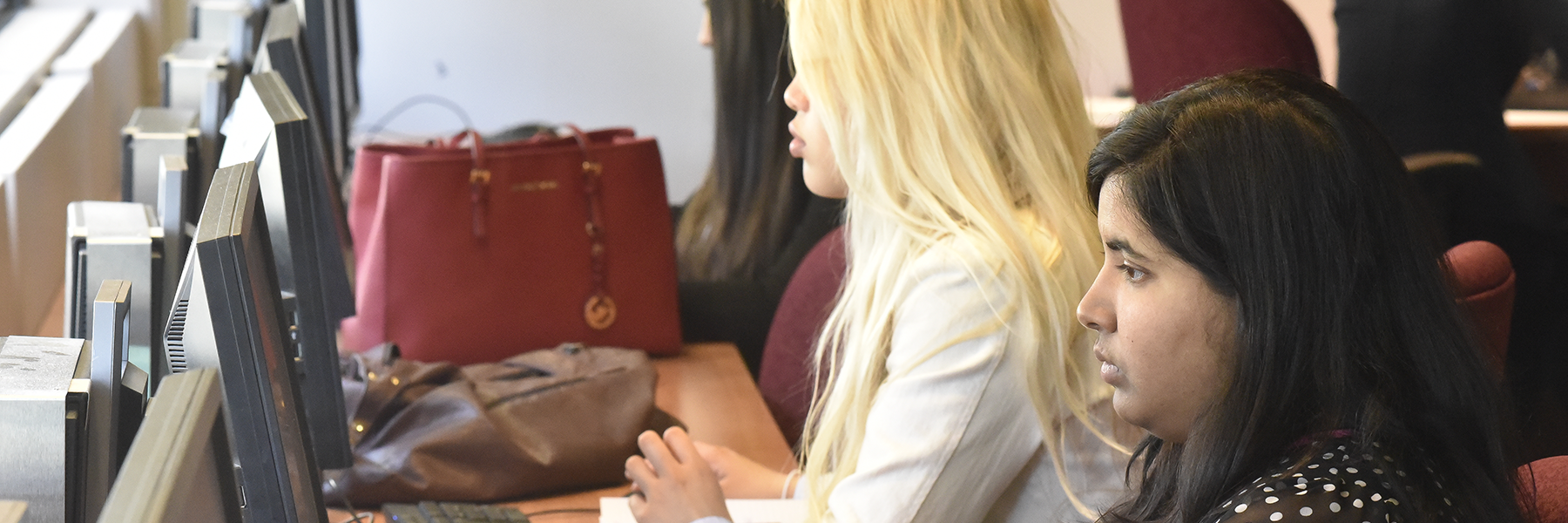What is Academic Integrity?
The term "Academic integrity" describes the values that are essential to the pursuit of scholarship and participation in an educational community: honesty, trust, fairness, respect and responsibility. In order for ideas to develop and thrive, there needs to be an open conversation a mong faculty, students and staff that clearly acknowledges the ideas expressed by each contributor. All members of the university community must create and support an environment that fosters academic integrity. In addition, maintaining the values of acad emic integrity protects the value of the University of Toronto degree.
Code of Behaviour
The Code of Behaviour on Academic Matters protects academic integrity at the University. Some examples of offences that are sanctioned under the Code include:
- Plagiarism - Using the words or ideas of another person without citing the source
- Unauthorized Aids – Using unauthorized aids, which could be considered cheating on tests and exams
- Unauthorized Assistance - Having someone else do the work for you • Forgery or falsification
- Making a false statement, presenting a false document or signing someone else’s name on a document required by the University.
- Personation - Having someone else write an exam for you or writing an exam for someone else
- Concocting - Using false data or providing false references
- Self-Plagiarism - Submitting work for credit in a course when you have submitted it in another course
Student’s Role in Understanding Academic Integrity at UTSC
High schools and Universities may vary in how they view plagiarism. Behaviour that may have been acceptable in some previous institutions may not be acceptable at the University of Toronto. For example, in some places, copying information from a textbook that is widely used without citing its reference or giving it credit is considered quite acceptable, but this would not be accepted at the University of Toronto.
Do you believe that memorization is a valuable scholarly activity?
Sometimes memorization is necessary for terms and facts that must be known. For example, dates in history or names of parts of the body or formulas are important to know. However, along with memorization the learner must be able to critically think about the application of this knowledge and be able to engage in analysis. Critical thinking and integration of content with analysis is highly valued.
Does academic writing involve reading background information by other authors and gathering facts and opinions about the topic?
In general, reading additional background sources and information is a common practice at University of Toronto. Gathering facts and ideas and differing opinions about the topic will allow you to deeply understand the topic. This process stimulates critical thinking about the topic and you may agree or disagree with the opinions expressed. This synthesis of information will help you to become a stronger scholar.
Some Tips on How to Avoid Academic Offences
- Do not share work electronically between friends or classmates. Remember that if you have shared work electronically and it is plagiarized by your partner, you can both be held responsible by the University.
- If the idea of a topic comes from a friend in a casual conversation, this must also be cited so that you can give credit to your friend. The friend may also use the same idea but evolve it in a different way and must also acknowledge the discussion that the two of you have had.
- Do not submit the same paper for two different courses. This is considered self-plagiarism. You have already received credit and feedback for the paper, which gives you an advantage over your peers. If you are interested in exploring the same topic in another course, be honest and discuss your idea with the professor. Perhaps you and the professor can arrive at another approach on the same topic allowing you to gain more knowledge and learn new material.
- Cell phones or any other electronic device (unless otherwise stated) are considered unauthorized aids in an examination or test setting. Some calculators are considered unauthorized aids, so be sure to check the requirements with your professor.
Time management and Motivation
- Managing your time will allow you to finish your work ahead of schedule so that there is time remaining to get the work reviewed by the Writing Centre and to act on the feedback given.
- Create and work towards achievable goals. Setting realistic goals can enhance motivation, which will increase the likelihood of getting task done on time.
- Reduce procrastination. Procrastination is unnecessary delay in getting to the important tasks that needs to be completed. One strategy to reduce procrastination is called the “5 Minute Plan”. Starting the task even if only for 5 minutes can help to reduce resistance towards the task and boost motivation, leading to successful and timely completion of the task.
References:
Hayes, N., & Introna, L. D. (2005). Cultural values, plagiarism, and fairness: When plagiarism gets in the way of learning. Ethics & Behavior, 15 (3), 213–231.
International Centre for Academic Integrity. (2014). Fundamental Values Project. Retrieved from http://www.academicintegrity.org/icai/resources-‐2.php
Office of Academic Integrity, UTSC. (2010). Top 5 tips to help avoid carelessly committing an academic offence during your exams. Retrieved from http://ose.utsc.utoronto.ca/ose/story.php?id=2406
University of Toronto Governing Council. (1995). Code of Behaviour on Academic Matters. Retrieved from http://www.governingcouncil.utoronto.ca/Assets/Governing+Council+Digital+Assets/Policies/PDF/ppjun011995.pdf
